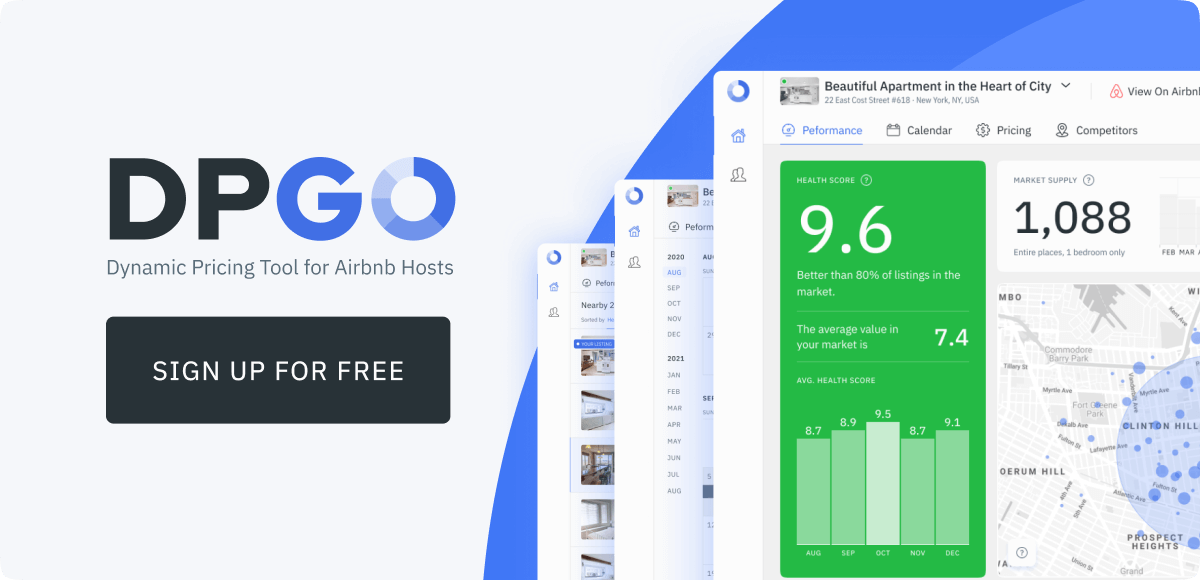Embarking on a vacation rental business as an Airbnb host involves more than just listing your space. Understanding Airbnb requirements is crucial for success. In many cities, specific regulations govern vacation rentals, so it’s essential to gather all the basic information before starting.
As a host, there are some things that you need to list your property on a site like Airbnb. In terms of Airbnb host requirements, they are quite basic – a property, a listing page, a connected bank account, and a set of contact details. Crafting clear house rules is fundamental to ensuring guests respect your space.
Remember, being a vacation rental host means maintaining high standards and offering exceptional experiences to guests. This guide will help you navigate the complexities of the vacation rental landscape, setting the foundation for a thriving hosting endeavor.
Fundamental Hosting Practices for Airbnb Success
Continuing from the basics provided by Airbnb, hosts must delve deeper into the specifics of vacation rental management. Vacation rental hosts must understand that listing their property is just the beginning. Alongside the main points, other requirements for hosting include ensuring your accommodation meets health and safety regulations. This is especially vital for new hosts aiming to establish trust and security.
Additionally, vacation rentals should offer essential amenities to ensure guests’ peace and comfort during their stay. This includes clean linens, toiletries, and internet access. For those renting out their space for short periods, it’s essential to outline clear check-in and check-out procedures in the booking details. This clarity aids in providing a seamless experience for both host and guests.

According to the Airbnb website, as a host, you’re required to:
- Be responsive: As an Airbnb host, your engagement level sets the tone for guest interactions. A high response rate not only reflects your commitment but also eases guests’ concerns. Responding promptly to inquiries and messages is crucial in building trust and encouraging more bookings for your property.
- Accept trip requests: Demonstrating availability and willingness to accommodate guests can significantly enhance your reputation as an Airbnb host. By accepting trip requests when available, you signal reliability and readiness, factors that potential guests heavily consider when choosing accommodation.
- Avoid canceling guests: Reliability is key in the vacation rental industry. Frequent cancellations can harm your reputation and reduce trust in your listing. Hosts must take bookings seriously and avoid canceling on guests, ensuring a stable and dependable service.
- Maintain a high overall rating: The quality of the guest experience in your vacation rental directly impacts your rating. Strive for excellence in all aspects of hosting—from the cleanliness of the space to the accuracy of your listing. A high overall rating is a testament to your dedication as an Airbnb host and attracts more guests to your property.
- Be aware of the local regulations: Make sure you are familiar with the local laws and regulations provided by local governments regarding certain types of accommodation and hosting activities in their area. Compliance with local laws not only protects the Airbnb host but also ensures guests enjoy their stay without any legal inconveniences.
By addressing these additional points, hosts can better manage their listings and create a welcoming, safe, and enjoyable space for their guests. The success of vacation rentals on Airbnb hinges on the host’s ability to meet and exceed these comprehensive requirements. Incorporating these essential practices into your hosting strategy, alongside providing a safe, well-equipped space, ensures guests have a memorable stay.
The above-mentioned are things that the platform requires, but we think the list needs a few additional points. As an Airbnb host, you must provide a service that brings a good name to your chosen platform. Why? Well, if your chosen platform gets a good name for high levels of service, you’ll benefit from higher booking rates.

These are the few things we’d add to the list of Airbnb requirements:
- Be understanding: Airbnb hosts should remember that flexibility can lead to positive experiences. Whether it’s a shared room or an entire home, understanding guests’ needs, such as early check-in or late check-out, can enhance their stay. Choose a cancellation policy, and stick to it unless there are extenuating circumstances. This approach not only adheres to Airbnb host requirements but also ensures guests’ peace and satisfaction.
- Be flexible: In the vacation rental business, unexpected situations arise. As an Airbnb host, offering a spare room or adjusting your booking details to accommodate guests’ last-minute changes can lead to extra income and higher guest satisfaction. Changing bookings is tiresome, but being flexible with your guests will likely result in a better rating! Remember, flexibility can turn a one-time guest into a returning customer.
- Be prepared: Hosts should ensure their property, whether it’s a private room or residential property, meets all health and safety standards. Having emergency supplies like flashlights, batteries, a first aid kit, and a fire extinguisher can be a literal lifesaver. Ensure that house rules are communicated to maintain order and safety.
- Be insured: Vacation rental insurance is so important. Securing basic coverage for your vacation rental is a general rule for all Airbnb hosts. Insurance provides a safety net, protecting your property from unforeseen damages and giving both host and guests peace of mind. You need insurance to protect yourself and it is that simple.
- Be proactive: Anticipate guests’ needs before they arrive. Provide guests with all necessary booking details and house rules in advance. This ensures they know what to expect and how to behave in your property, maintaining guests’ peace and your residential property’s integrity.
- Be accommodating: Consider the small touches that make a big difference, such as offering a guidebook for your area or providing extra blankets in a shared room. These thoughtful gestures can enhance the vacation rental experience and generate additional positive feedback, contributing to your success as an Airbnb host.
- Be thorough: Regularly review and update your listing to reflect any changes in your property or house rules. Accurate listings help avoid misunderstandings and ensure guests know exactly what they’re getting. It will lead to a smoother check-in process and overall stay.
Furthermore, Airbnb hosts looking to earn extra cash should pay attention to the finer details of their listing. Accurate booking details, clear check-in instructions, and a thorough understanding of Airbnb’s policies can help turn a spare room or entire home into a lucrative source of extra money.
By adhering to these practices, hosts can enhance their vacation rental experience, ensuring both their and their guests’ needs are met efficiently and respectfully. Then we come to Airbnb requirements for guests. Of course, you can operate as a vacation rental host without these Airbnb requirements. However, they’ll certainly help protect you and your vacation rentals!

These are the things that we think hosts should request and expect from their guests.
- ID Verification: It’s not too much to ask that people verify their identity before they request a booking at your listing. If they are not ID verified, you can of course request that they complete that process before you approve their booking. We think it’s pretty important to know who you’re renting your property to!
- Security Deposit: A security deposit should be a no-brainer. Sadly, in today’s day and age, you can’t always depend on people to respect your property and its contents. Charging a security deposit means that if any damage does occur, you don’t have to fight to get money out of your guest, which nearly always proves impossible.
- Rental Agreement: Asking your guests to sign a rental agreement enables you to hold them accountable for any rule breaks. If you’ve charged a security deposit and your house rules state no parties. It’ll be easier to defend your decision to keep some or all of their deposit to your chosen platform.
- House Rules: Asking guests to read and agree to your house rules can also help you if the guests damage your vacation rentals. If you go even further and include a clause in your rental agreement that guests need to read, understand, and adhere to your house rules. Then you’re well protected in case of a damage claim dispute.





Comments are closed.